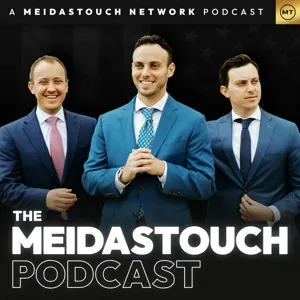Podcast Summary
Disinflation: Prices Still Rising, But Slower: Disinflation is a form of inflation where prices rise more slowly, impacting consumers differently depending on location and goods/services.
Disinflation is a type of inflation where prices are still rising, but at a slower rate compared to the previous year. This means that while the Federal Reserve may be happy with disinflation as it brings them closer to their target of 2% inflation, consumers continue to experience price increases in their daily lives. Furthermore, the extent of these price increases can vary depending on factors such as location and specific goods or services. Overall, disinflation represents a more moderate form of inflation compared to the rapid price increases associated with standard inflation, but it still has real-world consequences for individuals and businesses.
Understanding Inflation Trends for Specific Items: The Consumer Price Index may not fully capture inflation trends for specific items like andouille sausage. Additional sources like Bunny's Gumbo Index can provide more comprehensive insights.
American Express Business Gold Card offers four times points on up to $150,000 in annual purchases in select categories like transit, US restaurants, and gas stations. Meanwhile, understanding inflation trends can be complex, especially for specific items like andouille sausage used in gumbo. While the Consumer Price Index (CPI) can provide insights, it may not cover all ingredients. For instance, the price of pork, a key ingredient in andouille sausage, has increased by 18% over the past three years, but it has remained stable in the past year. However, Bunny's Gumbo Index (BGI) shows a different trend, highlighting the importance of considering various sources to fully understand price changes.
Price increases for key food ingredients vary across regions: Regional disparities in food prices result from differences in cost of living, shipping costs, and inconsistent inflation rates for specific ingredients.
While the national Consumer Price Index (CPI) reports varying food inflation across the country, the price increases are not evenly distributed. For instance, the price of flour, a key ingredient in making a roux for gumbo, has risen significantly faster in certain regions compared to the national average. Furthermore, the cost of living, including housing and labor, varies greatly across the country, leading to differences in food prices. These regional disparities extend beyond food, with housing costs being a major driver for differences between regions. Additionally, perishable food items often face higher shipping costs, contributing to pricing differences. Contrary to the national trend, some fresh vegetables, like those used in the "holy trinity" of Cajun cooking, are actually becoming cheaper nationally, but not in all regions. This uneven distribution of price changes can significantly impact the cost of living for individuals in different parts of the country.
Understanding regional price differences with local indices: While the Consumer Price Index provides a national perspective on inflation, local price indices can offer a more granular view of price changes in specific regions or items.
While the Consumer Price Index (CPI) can provide valuable information about inflation trends, it may not fully capture price fluctuations in specific regions or for certain food items. For instance, Bunny's experience with a significant increase in bell pepper prices was not reflected in the national CPI. Economist Ben Meadows explained that the CPI's goal is to represent a national basket of goods, but it can be challenging to account for regional differences and price changes in specific items. As a result, Bunny's "Gumbo Index" – tracking the cost of making her gumbo – serves as a useful complement to the CPI, providing a more granular perspective on price changes in her local area. This discrepancy between the CPI and Bunny's experience highlights the importance of considering multiple sources of information when assessing inflation trends.
Regional food prices may vary, but overall disinflation trends continue: Economist Ben Meadows warns of potential new inflation trend called capital I inflation due to geopolitical tensions, but consumers continue to enjoy their favorite regional dishes despite price fluctuations. Global economic factors also play a role in inflation trends.
While regional food prices, such as gumbo or barbecue, may show some variation, overall disinflation trends are still present across the country. However, economist Ben Meadows warns that the new year could bring a different kind of inflation, known as capital I inflation, due to geopolitical tensions in Europe and the Middle East. Despite these concerns, consumers continue to buy and enjoy their favorite regional dishes. It's important to note that while regional price fluctuations can provide insight, larger global economic factors also play a significant role in inflation trends. This episode was produced by Stephen Bessaha and Cori Bridges, with engineering by Valentina Rodriguez Sanchez, fact check by Sarah Juarez, and edits by Kicking Cannon. The Indicator is a production of NPR, sponsored by Capella University and Fundrise. Capella University offers flexible online learning, while Fundrise's flagship fund plans to expand its real estate portfolio amidst discounted asset prices. Always consider investment objectives, risks, charges, and expenses before investing.






